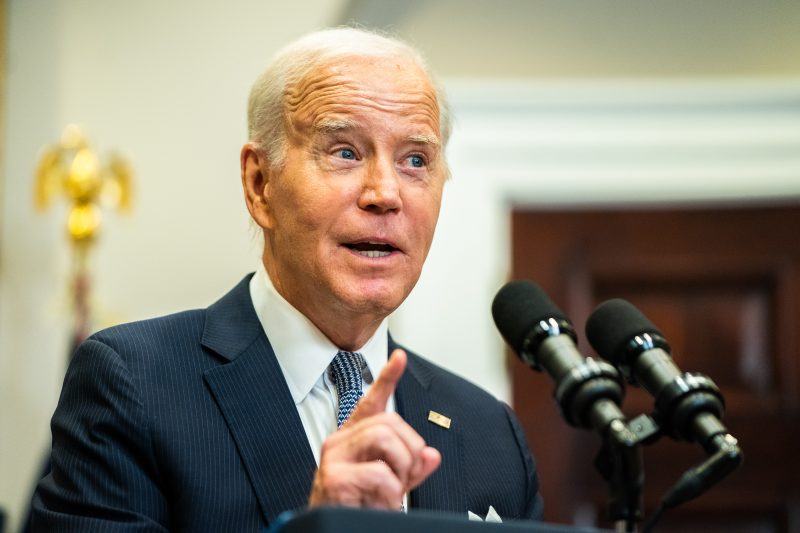In a bold move that has ignited passionate debates across the nation, President Joe Biden recently endorsed a series of Supreme Court reforms, including advocating for an amendment to limit immunity for judges. This proposal has profound implications for the American legal landscape and raises complex questions about the separation of powers, checks and balances, and the nature of judicial independence.
By supporting this amendment, President Biden is signaling his commitment to ensure accountability within the highest echelons of the judiciary. The concept of judicial immunity has long been a cornerstone of the American legal system, shielding judges from personal liability for official actions taken within the scope of their authority. However, this shield of immunity has also been criticized for potentially fostering a culture of unchecked power and impunity among judges.
The proposed amendment aims to strike a delicate balance between preserving judicial independence and holding judges accountable for misconduct or unconstitutional behavior. Supporters argue that limiting immunity could help prevent abuses of power and ensure that judges are held to the same standards of accountability as other public officials. It could also foster greater transparency and trust in the judiciary, crucial components of a healthy democracy.
However, opponents of the amendment warn that it may have unintended consequences, such as chilling judicial independence and exposing judges to frivolous lawsuits or political retribution. They argue that immunity is essential to protect judges from undue influence or harassment in carrying out their duties and making difficult legal decisions.
In addition to the immunity amendment, President Biden’s endorsement of Supreme Court reforms includes proposals to expand the number of justices on the Court and impose term limits. These suggestions have sparked intense debates about the optimal composition and functioning of the highest court in the land.
Expanding the number of justices is seen by some as a way to rebalance the ideological makeup of the Court and reduce the influence of individual justices. Proponents argue that a larger bench could help depoliticize the Court and ensure a diversity of perspectives in its decision-making process. However, critics view this proposal as a potential threat to the Court’s legitimacy and worry that it could further erode public trust in the judiciary.
Similarly, imposing term limits on Supreme Court justices is seen as a way to ensure a more regular turnover of judges and prevent the Court from becoming ossified or out of touch with societal values. Advocates argue that term limits could promote judicial diversity and encourage a more dynamic and responsive judiciary. Yet, opponents caution that such limits could politicize the Court even further and undermine its institutional integrity.
In conclusion, President Biden’s endorsement of Supreme Court reforms, including the proposed amendment to limit judicial immunity, has sparked a lively and contentious national conversation about the nature of justice, accountability, and the rule of law. These reforms have the potential to reshape the legal landscape in profound ways and will continue to be the subject of intense scrutiny and debate in the coming months and years. Whether these proposals will ultimately strengthen or undermine the judiciary remains to be seen, but one thing is certain: the future of the Supreme Court is at a crossroads, and the decisions made now will have far-reaching consequences for generations to come.

